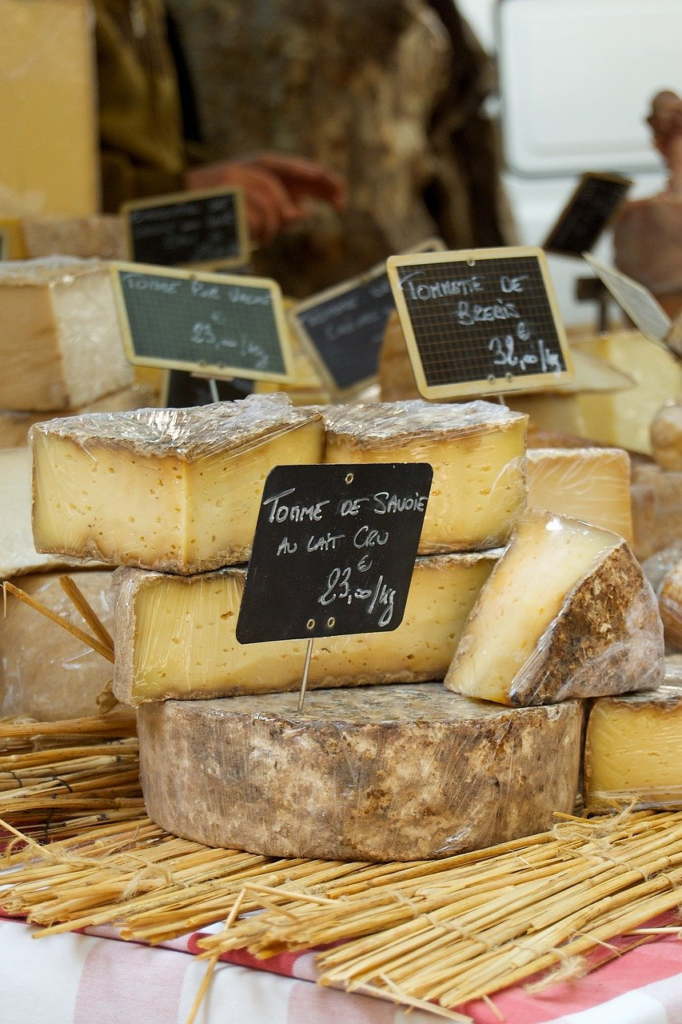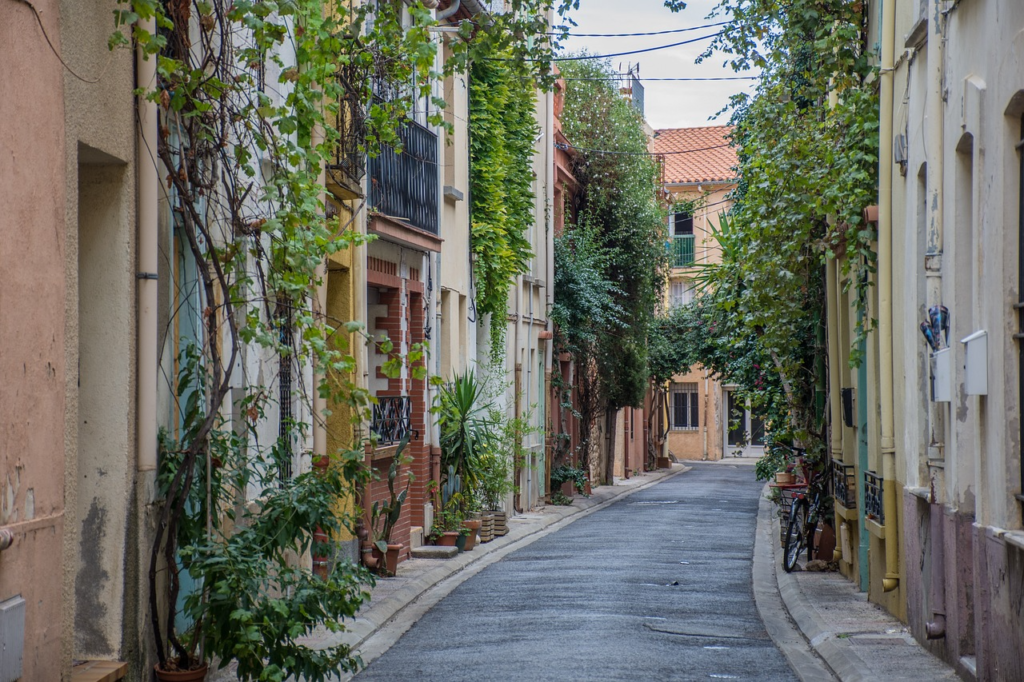Table of Contents

Introduction to Local Living in France
France, often celebrated for its iconic landmarks and renowned tourist attractions, harbors an authentic charm that remains hidden within its vibrant local communities. While the Eiffel Tower and the Louvre have their allure, the true essence of French life is best experienced by delving deeper into the everyday lives of its residents. Living like a local offers an enriched perspective, allowing one to connect more intimately with the country’s rich culture, traditions, and rhythms.
To truly understand France, it’s essential to step off the beaten path and explore the country as the locals do. This means engaging in the daily activities, traditions, and social customs that define life in this diverse nation. Whether it’s savoring a freshly baked croissant at a neighborhood patisserie, participating in regional festivals, or shopping at a bustling farmer’s market, these experiences reveal the soul of France beyond the brochures. This approach not only enhances one’s appreciation of French culture but also fosters personal connections and lasting memories that go beyond the typical tourist agenda.
Embracing local living in France encourages travelers to slow down and savor the subtleties of French life. From the cobblestone streets of quaint villages to the chic neighborhoods of Paris, every corner of France has its unique stories and traditions waiting to be discovered. By choosing to live like a local, one can uncover a version of France that is both timeless and dynamic, where centuries-old practices coexist with contemporary lifestyles.
This guide is designed to inspire and encourage you to embark on a journey that transcends tourism. Through the following sections, you will find insights, tips, and recommendations to help you blend into the fabric of French society and experience the country in its most genuine form. Let this be your invitation to see France through the eyes of its inhabitants and embrace the extraordinary charm of local living.
Exploring French Markets

French markets are an indispensable part of daily life, offering travelers an authentic glimpse into French culture. The vibrancy, the plethora of fresh produce, and the aroma of local delicacies make these markets a must-visit for anyone wishing to experience France like a local. Different types of markets cater to varying interests and offer a diverse array of goods, from fresh produce to antiques.
One such iconic market is the Marché des Enfants Rouges in Paris. Established in 1615, it stands as the city’s oldest covered market. Here, visitors can find an array of fresh fruits, vegetables, and artisanal cheese, as well as international food stalls offering cuisines from all over the world. The charm of Marché des Enfants Rouges lies in its blend of old-world charm and cosmopolitan atmosphere. A tip for navigating this bustling market is to arrive early in the morning to avoid the midday rush and get the freshest picks of the day.
On the other hand, the Marché Provençal in Antibes offers a quintessentially Provençal experience. Known for its fragrant herbs, olives, and lavender products, this market entices the senses and encapsulates the spirit of the French Riviera. The market is especially famous for its selection of authentic Provençal soaps and locally-produced olive oil. To truly navigate like a local, don a wide-brimmed hat and take a leisurely stroll, savoring every sight and scent. Language enthusiasts may benefit from practicing their French phrases to mingle more smoothly with vendors, who often appreciate the effort.
French flea markets, or brocantes, also offer a treasure trove of vintage finds and antiques. Some noteworthy mentions are the Marché aux Puces de Saint-Ouen in Paris, one of the largest flea markets in the world, and Marché aux Puces de Nice on the Côte d’Azur. These markets are perfect for those looking to find unique souvenirs and relics that tell a story. A pro-tip when browsing flea markets is to haggle politely; vendors expect a little negotiation, and it can often lead to a more favorable price.
Whether you seek the freshest produce, an aromatic bouquet of regional specialties, or a piece of history, French markets provide an immersive experience that connects you directly to the soul of local life in France. From the bustling alleys of Paris to the sun-soaked lanes of Provence, these markets are not just places to shop—they are places to experience French culture at its most vibrant and authentic.
Dining at Small, Hidden Eateries
France’s culinary scene is renowned worldwide, with its Michelin-starred restaurants capturing much of the spotlight. However, for those seeking a genuinely immersive and authentic dining experience, smaller, hidden eateries are often where the most memorable meals are found. These local bistros, cafés, and family-owned restaurants embody the heart and soul of French gastronomy, offering dishes that are rich in tradition and regional flair.
To uncover these culinary gems, one cannot rely solely on guidebooks or tourism websites. Instead, consider seeking recommendations from locals, who often have the best insight into where the most authentic and delicious meals can be found. Additionally, wandering through neighborhood streets, especially away from typical tourist areas, can lead you to charming eateries that may not have an online presence but are beloved by the local community.
The diversity of France’s regional cuisine is a delightful exploration in itself. Each region offers unique dishes that reflect its cultural heritage and local ingredients. In Provence, for example, you may find small, family-run establishments that serve dishes infused with flavorful herbs and olive oil, such as ratatouille and bouillabaisse. Moving northwest to Brittany, creperies—often modest in appearance—offer delectable buckwheat galettes and sweet crepes, paired with local cider. The Alsace region presents an entirely different culinary experience, with cozy winstubs—a type of wine bar/restaurant—serving hearty fare like choucroute garnie, a dish of sauerkraut with sausages and potatoes.
Some recommendations for hidden dining spots across various regions include the charming Le Troquet in Paris, which specializes in Basque cuisine, or La Ferme du Vert in the Pas-de-Calais region, known for its rustic French country fare. In Lyon, often dubbed the gastronomic capital of France, small bouchons serve hearty, traditional Lyonnaise dishes like coq au vin and quenelles de brochet. For a unique experience in Bordeaux, the tiny Le Petit Commerce offers fresh seafood dishes that perfectly reflect the region’s coastal influence.
Exploring these hidden eateries not only enhances one’s culinary experience but also supports local businesses and preserves traditional food cultures. So, as you embark on your next journey through France, ensure you make time to dine like a local, savoring the rich diversity of flavors that these modest but exceptional establishments have to offer.
Participating in Local Festivals and Traditions
France’s rich cultural tapestry is vibrantly displayed through its numerous local festivals and time-honored traditions. These events, deeply rooted in history and tradition, provide an authentic glimpse into the life and spirit of the French people. By participating, one not only enjoys France’s joie de vivre but also experiences a sense of belonging to the local community.
One of the most celebrated events is the Fête de la Musique, held annually on June 21st. This nationwide music festival transforms streets, squares, and parks into lively stages for musicians of all genres. From amateur performers to professional artists, the entire country becomes a harmonious blend of sounds, reflecting France’s eclectic musical landscape. As a visitor, you can immerse yourself by joining the street celebrations, bearing in mind the importance of respect and restraint to preserve the friendly atmosphere.
Another not-to-miss event is the Vendanges Wine Harvest Festival in regions like Bordeaux, Burgundy, and Champagne. Marking the culmination of the grape harvest season, these festivals are brimming with local traditions, wine tastings, and communal feasts. Participating in a vendange (harvest) provides an enriching experience, highlighting the intricate relationship between local communities and their vinicultural heritage. Engage with locals, help in the harvest if possible, and enjoy the festivities with an appreciative mindset towards the traditions and labor that contribute to France’s world-renowned wines.
In the picturesque villages of Provence, village fêtes deliver an intimate portrayal of rural French life. These small-scale festivals, often organized around the patron saint’s feast day, feature processions, traditional music, dancing, and locally prepared culinary delights. To fully enjoy these fêtes, adopt a respectful curiosity, participate in communal activities, and sample local delicacies with gratitude towards the hosts. Dressed appropriately and adhering to local customs can enrich your experience and foster genuine connections with residents.
Whether attending the Fête de la Musique, the Vendanges Wine Harvest Festival, or a charming village fête in Provence, engaging with local traditions allows a visitor to transcend the typical tourist experience. Embracing these opportunities responsibly and enthusiastically fosters mutual respect and provides a deeper understanding of the French way of life. Through these festivals, one can witness the true essence of France – a blend of history, community, and celebration.
Staying in Local Accommodations
Opting for hotels during your stay in France can be convenient; however, immersing yourself in local accommodations like guesthouses, Airbnb rentals, and rural gîtes can significantly enrich your travel experience. These options offer a deeper, more personal connection to the local culture and lifestyle that traditional hotels rarely provide.
Guesthouses, often run by local families, offer a cozy and intimate environment. They present an opportunity to interact directly with local hosts, who can share invaluable insider knowledge. Imagine enjoying a homemade breakfast while discussing hidden gems and local anecdotes with someone who has lived in the area for years. This personalized experience can reveal aspects of France that remain hidden to most tourists.
Airbnb rentals, ranging from chic urban apartments to quaint countryside cottages, provide a wide array of choices to fit various preferences and budgets. Staying in an Airbnb allows you to experience French daily life in a genuine residential setting. Whether you’re picking up fresh croissants from a neighborhood bakery or mingling with locals at a nearby park, these experiences can make your stay more memorable and fulfilling. Quality reviews and ratings available on Airbnb also make it easier to find accommodations that meet your standards.
For those seeking tranquility, rural gîtes offer an idyllic retreat. Often set in picturesque landscapes, these self-catering cottages or apartments provide a restful escape from bustling city life. They are perfect for those looking to explore the French countryside, with ample opportunities for hiking, cycling, and other outdoor activities. The serene surroundings paired with the charm of rustic living offer a unique taste of the rural French lifestyle.
To find and book these accommodations, several online platforms can be quite useful. Websites like Airbnb, Booking.com, and Gîtes de France list extensive options with comprehensive reviews. It’s advisable to book in advance, particularly during peak seasons, to secure your preferred choice.
Having experienced various types of local accommodations, travelers often share stories of unforgettable stays. One traveler reminisced about a delightful week in a gîte near Provence, where the host introduced them to local vineyards and shared stories of the region’s history. Such personal touches render these experiences distinct and enduring.
Learning Basic French Phrases
When traveling to France, making an effort to speak a few words of the local language can significantly enhance your travel experience. French people generally appreciate when visitors attempt to communicate in French, even if it is just basic phrases. This effort is not only seen as a sign of respect, but it also fosters a more genuine connection with locals, facilitating smoother interactions and a deeper understanding of the culture.
Here are some basic French phrases that can help you navigate daily interactions more comfortably:
- Bonjour (Good morning/Hello).
- Merci (Thank you).
- S’il vous plaît (Please).
- Excusez-moi (Excuse me).
- Parlez-vous anglais? (Do you speak English?).
- Où est…? (Where is…?).
- Combien ça coûte? (How much does it cost?).
- L’addition, s’il vous plaît (The bill, please).
These phrases are essential for day-to-day interactions such as ordering food, asking for directions, or making simple purchases. To further improve and practice your French, consider the following tips:
Use language apps and resources: There are numerous apps and online resources tailored for learning French. Apps like Duolingo, Babbel, or Rosetta Stone offer structured lessons that can help you build your vocabulary and practice pronunciation.
Practice with locals: Don’t be shy to practice your French with locals. Most people will appreciate your attempt and may even correct you gently, providing instant feedback that is invaluable for improvement.
Engage with media: Listening to French music, watching French movies, or reading French books can help immerse you in the language. This exposure helps attune your ear to the natural flow of conversations and improves comprehension.
Remember, the key to learning a new language is consistency and making an effort. Even incorporating a handful of common French phrases into your interactions can make your experience in France more enjoyable and authentic.
Exploring Lesser-Known Regions
While Paris, Nice, and Lyon remain popular draws for tourists, France conceals a trove of lesser-known regions that offer equally enchanting experiences. One such gem is the Alsace wine route, a picturesque journey through vineyards, charming villages, and medieval castles. Renowned for its exceptional wines, the Alsace region provides an immersive cultural experience with half-timbered houses, vibrant local festivals, and delectable cuisine. For wine enthusiasts and history buffs alike, this region is a delightful escape from the well-trodden path.
Another remarkable area is the Jura mountains, characterized by their pristine nature and dramatic scenery. Nestled between Burgundy and Switzerland, the Jura offers a mix of outdoor adventures and serene retreats. Activities like hiking, skiing, and exploring the extensive cave systems attract nature lovers year-round. The region’s robust culinary traditions, featuring Comté cheese and vin jaune, add a unique flavor to the visit. The Jura’s tranquility and awe-inspiring landscapes make it a perfect destination for those seeking respite from busy urban centers.
Further south, the Dordogne Valley enchantingly marries natural beauty with historical significance. The lush valleys, meandering rivers, and prehistoric caves offer a backdrop steeped in history and romance. The valley is dotted with beautiful chateaux and medieval towns, such as Sarlat and Beynac-et-Cazenac, which transport visitors back in time. Canoeing along the Dordogne River and visiting the ancient cave paintings of Lascaux are experiences not to be missed. With its rich heritage and stunning vistas, the Dordogne Valley presents a compelling alternative to more conventional French destinations.
In these lesser-known regions, visitors can experience the essence of France in a truly authentic way, away from the crowds. The Alsace wine route, the Jura mountains, and the Dordogne Valley each offer unique landscapes and cultural treasures that are equally, if not more, captivating than the country’s more famous locales.
Eco-Friendly and Sustainable Travel Tips
Living like a local while traveling in France extends beyond immersing oneself in the culture; it also involves respecting the environment and the community. One of the most significant ways to achieve this is by embracing eco-friendly and sustainable travel practices. By doing so, you contribute to preserving France’s natural beauty and cultural heritage for future generations.
Firstly, consider utilizing public transportation. France boasts an extensive and efficient public transit system, including trains, buses, and trams, which provide a sustainable alternative to car travel. The TGV (Train à Grande Vitesse) network, for example, connects major cities quickly and with minimal environmental impact. By opting for public transportation instead of driving, you can reduce your carbon footprint significantly.
Another critical aspect of sustainable travel is supporting local businesses. When dining out, shopping, or booking accommodations, prioritize establishments owned and operated by locals. This not only boosts the local economy but also enriches your travel experience with authentic regional flavors and personalized service. Markets, artisan shops, and family-run restaurants offer unique insights into French culture and contribute less to the environmental strain often associated with larger chains.
Minimizing waste is equally important. Simple practices such as carrying a reusable water bottle, avoiding single-use plastics, and recycling can make a substantial difference. Many French cities have public water fountains, or “fontaines publiques,” where you can refill your bottle, reducing the need to purchase bottled water. Additionally, participate in local recycling initiatives and be mindful of your waste disposal habits.
Lastly, embrace the benefits of slow travel. Rather than rushing through multiple destinations, take the time to explore each place thoroughly. This not only reduces the environmental impact of frequent travel but also allows for a deeper connection with the local community. Slow travel encourages a more relaxed pace, giving you the opportunity to savor the landscape, engage with locals, and discover hidden gems beyond the usual tourist hotspots.
By adopting eco-friendly and sustainable travel practices, you contribute to the preservation of France’s cultural and natural heritage. Living like a local in this manner ensures that the charm and splendor of this remarkable country remain intact for generations to come.






